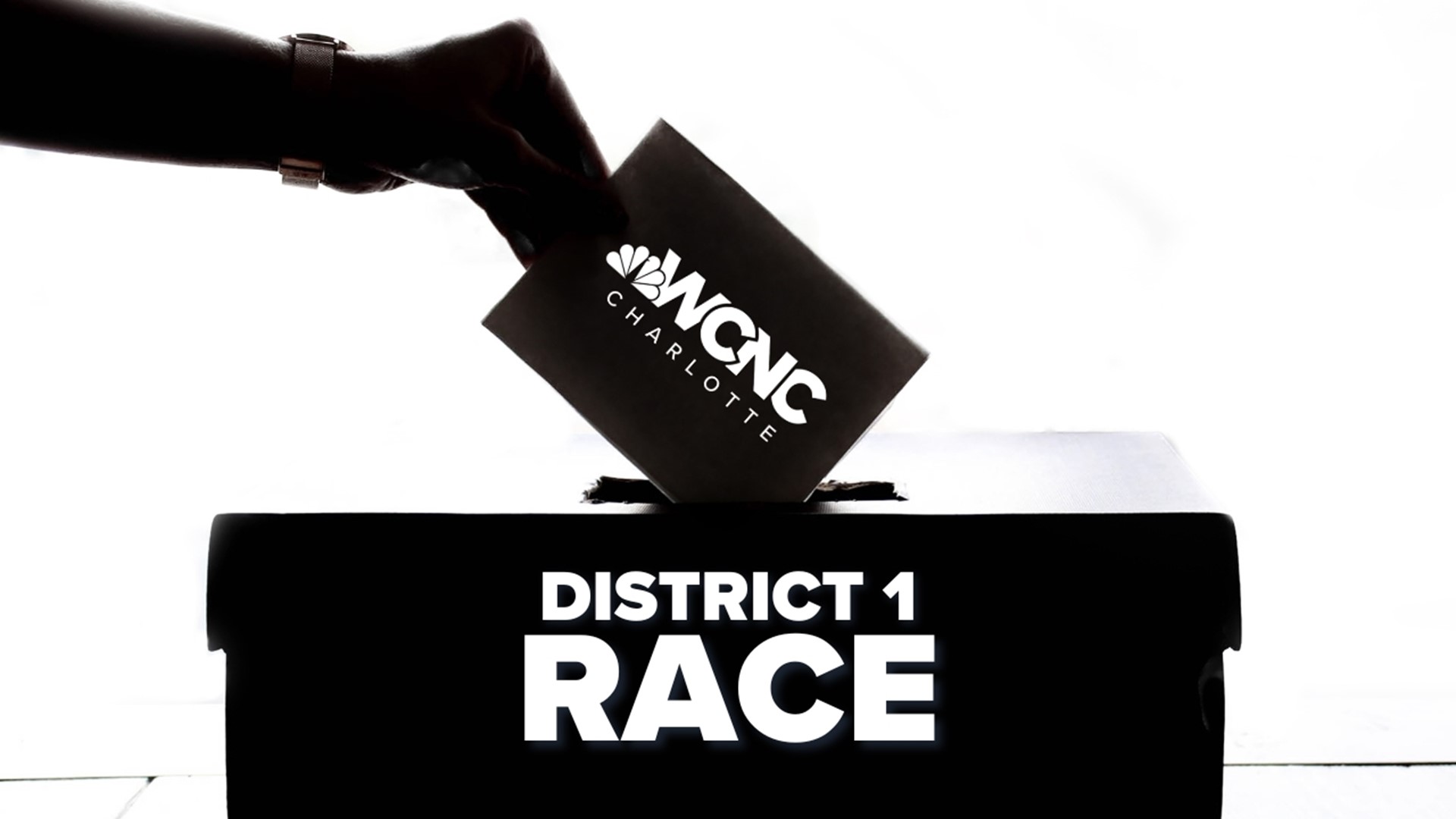CHARLOTTE, N.C. — Nationwide, the Republican Party has organized to get more of its party involved in school board races.
From the local to the national level, Republican politicians have pushed legislation to alter school boards' power. Changes vary from public health decisions to the curriculum.
In a series on the upcoming races for the Charlotte-Mecklenburg Schools Board of Education, one race represents the varying meaning of what it means to be a Republican school board candidate.
There are five people running in the district one race. It includes the northern suburbs of Huntersville, Davidson and Cornelius.
School Board races in North Carolina on paper are nonpartisan, but there are some districts, based on registered voters, and previous voting patterns, that will likely have a Republican as the winner of the seat. District 1 is an example in Mecklenburg County.
The two registered Republicans, Ro Lawsin and incumbent Rhonda Cheek, are both focusing on students but with slightly different approaches.
"For the first time in 13 years, I think they're ready for a change," Lawsin said. "I think they're ready for someone that wants to be an advocate to be a voice for them to fight for their students."
Lawsin dubbed his campaign, "The Year of the Parent." His mantra is in line with the national outlook for the Republican Party, calling for more parent choice and input on schools.
"The lack of transparency and open communication by the current board members to the community is dismal and borders on dismissive when parents are pleading for answers and solutions to the many problems plaguing CMS," Lawsin's website says.
The official platforms on education for the North Carolina Republican Party include enacting legislation guaranteeing parental rights over sex and health education in the state and parents having the right and responsibility to direct their children’s education.
Lawsin's platforms on school safety, student outcomes and accountability of the board garnered him the endorsement of the Mecklenburg Republican Party over incumbent Rhonda Cheek, who is also a Republican.
"I've been very nonpartisan in my service to the school board because kids don't need politicians, they need people who care," Cheek said.
Cheek has gained the support of the local educators’ association and prides herself on being a moderate on the board.
“I have a proven track record of working well with other people and working in coalitions with people of different persuasions," Cheek said. "There's nine individuals on that board. And no matter what party they're in, or where they come from, we have to peel it back into what matters.”
Cheek has stood firm on issues more aligned with fellow Republicans, like the decision of parent choice for masking in schools and bringing students back into the classroom during COVID-19.
Prior to running for the board, Bill Fountain changed his party affiliation from Republican to unaffiliated.
"The eight women on this board have forced in woke, disturbing, disrupting agents like the pornographic books, gender identification, that I think is spinning the moral compass of our students from wrong to right." Fountain said in his comments at a September school board meeting.
Fountain, a frequent speaker at school board meetings has used language widely viewed as sexist and homophobic.
"God made us male and female," Fountain's campaign website says. "Your sponsored gender identity survey undermines biology, the family structure, and our culture by celebrating gender dysphoria, which is a mental illness found in .005 percent of our population."
Gender dysphoria is included in the Diagnostic and Statistical Manual of Mental Disorders (DSM-5), a manual published by the American Psychiatric Association. The DSM–5 explicitly says that “gender non-conformity is not in itself a mental disorder.”
"The diagnosis was created to help people with gender dysphoria get access to necessary health care and effective treatment. The term focuses on discomfort as the problem, rather than identity," according to the Mayo Clinic.
There is also pushback on the categorization of gender dysphoria. The World Health Organization removed gender nonconformity from its list of mental disorders in its global manual of diagnoses in 2019.
"Everyone is not a fan of what you represent and what you stand for, "WCNC Charlotte's Shamarria Morrison asked Fountain."Some categorize your statements as racist, homophobic or xenophobic."
He responded.
"I understand it is it's an unpopular notion. There's no doubt about it. But in my heart, I believe that I am right on," Fountain said. "I have had other people come and tell me it doesn't make any difference."
His campaign to stop what he calls “wokeness” in schools falls in line with the most conservative voices of the Republican Party.
"We need to get back to the character, we need to get to caring about people, we need to, you know, have discipline," Fountain said. "We shouldn't have our schools messing around with the sexuality of our kids."
The group Freedom for all American tracks legislation targeting LGBT youth in schools. The group tracked four in North Carolina and more than 100 nationwide, mostly introduced by Republican-led legislatures.
Since Cheek took office, countywide, the demographics and party affiliation of Mecklenburg voters have changed.
In 2009, there were 273,256 Democrats, 170,426 Republicans, and 149,106 unaffiliated voters. In 2022 there are 337,016 Democrats, 162,384 Republicans, and 294,952 unaffiliated voters.
There are two other registered Democrats running for the seat as well and they are confident they have a chance to beat the incumbent despite the odds.
County voting records show the large majority of candidates who run for re-election for CMS win their seats.
Contact Shamarria Morrison at smorrison@wcnc.com and follow her on Facebook, Twitter and Instagram.
WCNC Charlotte is committed to reporting on the issues facing the communities we serve. We tell the stories of people working to solve persistent social problems. We examine how problems can be solved or addressed to improve the quality of life and make a positive difference. WCNC Charlotte is seeking solutions for you. Send your tips or questions to newstips@wcnc.com.

